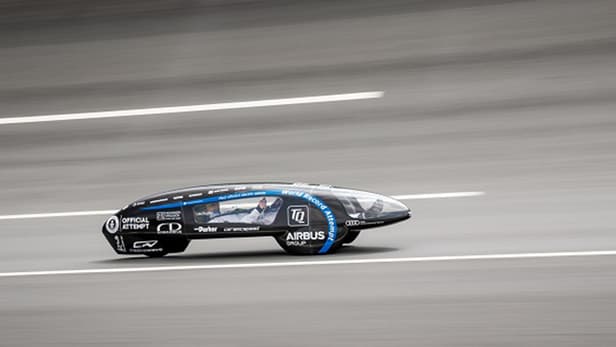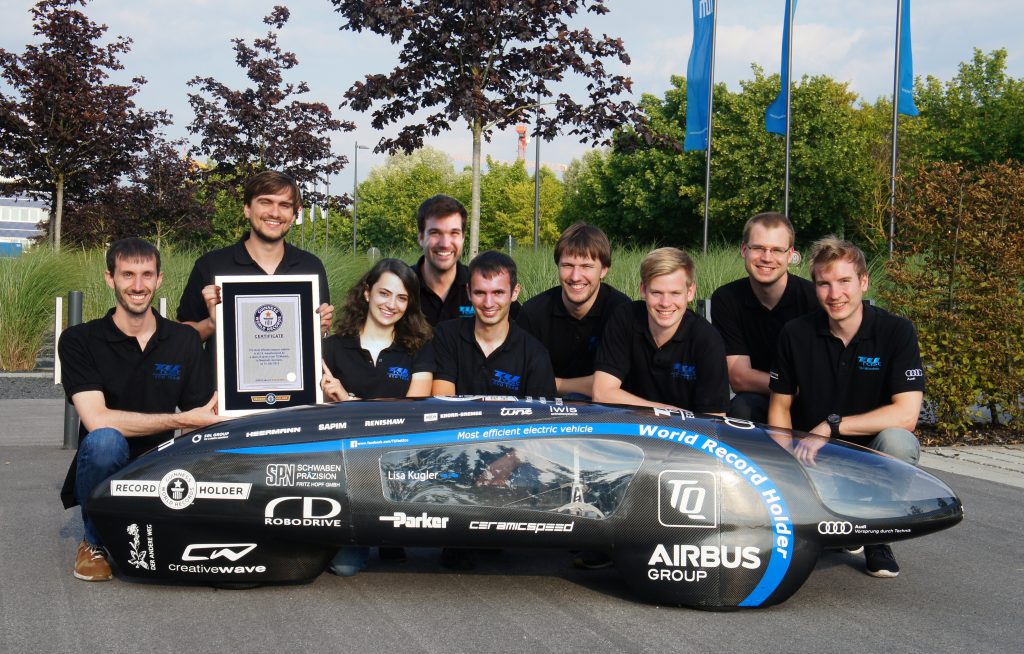
As seen with the creation of the smallest motor in history in 2011, road cars are gradually becoming more efficient but have struggled to rival the lighter vehicles that universities are producing. A record-breaking student/alumni creation further displayed this difference in capability. The TUfast Eco Team, beginning as a student initiative in 2002 at the Technical University of Munich, has attained the Guinness World Record for the most efficient electric vehicle.
The winning car was a modified TUfast eLi14, originally used in the 2014 Shell Eco Marathon. “We saw it as an ideal candidate because it has aerodynamic advantages to our more current models, but is still very light and has a flexible running gear train,” a blog post on the team’s website reads. Always working with the goal of improving a new TUfast vehicle to exceed the previous one, TUFast Eco also upgraded the 2014 model with a custom controller, revised magnet placement, and silver wire coils. The original rims were also replaced, receiving ultra-low friction bearings. Additionally, the team developed a device to measure used electric energy (a joulemeter) in-house.
Out on Audi’s test track, the car initially reached an average energy use of 1,142 km/kWh (710 mi/kWh) with Guinness World Record judges watching. The team adjusted the speed controller and tire pressure to push for more and reached 1,232 km/kWh (765.53 mi/kWh). Being the equivalent of approximately 26,135 U.S. mpg, this could theoretically allow the car to cover 10,956 km (6808 mi) on just one liter of 95 RON petrol.

Funded almost completely by donations and sponsors, the project offers budding engineers “the unique possibility of a whole product engineering process from scratch.” While only certain participants were recognized as the record-winning team, 2016’s entire TUfast Eco Team consisted of six subdivisions, including a group of advising members and a team dedicated to the drivetrain, a set of components that deliver power to the vehicle’s driving wheels. The organization’s cars have participated in the Shell Eco Marathon since 2011, when it submitted a vehicle after developing it for about two years.
Setting an example for car companies wanting to improve their energy efficiency, the TUfast Eco Team provides young people with the chance to gain the technical background needed for this engineering work. “Where to learn more about working under time and cost constraints [and] to take full responsibility for a task of things like teamwork and communication?” the team’s website reads. With this new record, the TUfast Eco vehicle is sure to be inspiring for major car companies looking to include energy efficiency more prominently in public models.
Source: Gizmag 1, TUfast Eco 1, Gizmag 2, TUfast Eco 2
Advertisement
Learn more about Electronic Products Magazine





